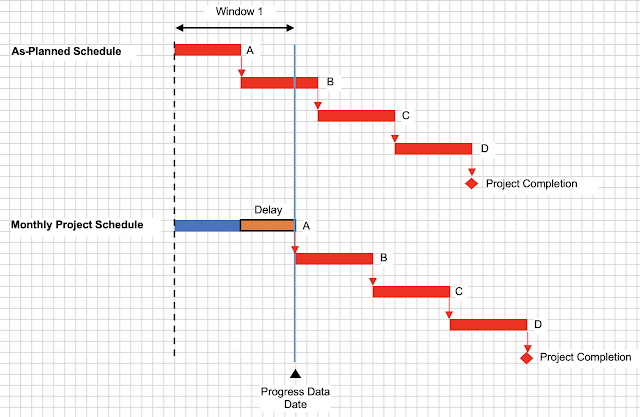 |
| Typical Delay Analysis Methods in Construction Claims |
Why do we need Delay Analysis in Construction Claims?
Because The Delay Must Affect The Critical Path
The Construction Contracts often state that no adjustment to the critical milestones dates or the scheduled completion dates would be made unless the delay affects a critical path activity.
This concept is consistent with industry practice, as stated in the SCL Delay and Disruption Protocol 2nd Edition, page 6: “Unless there is express provision to the contrary in the contract, where there is remaining total float in the programme at the time of an Employer Risk Event, an EOT [Extension of Time] should only be granted to the extent that the Employer Delay is predicted to reduce to below zero the total float on the critical path affected by the Employer Delay to Completion (i.e. if the Employer Delay is predicted to extend the critical path to completion).”
AACE (International Recommended Practice No. 29R-03 Forensic Schedule Analysis, April 25, 2011, Section 1.5, B.6 Delay Must Affect the Critical Path, page 18) addresses this requirement: “In order for a claimant to be entitled to an extension of contract time for a delay event (and further to be considered compensable), the delay must affect the critical path. This is because before a party is entitled to time-related compensation for damages it must show that it was actually damaged. Because conventionally a contractor’s delay damages are a function of the overall duration of the project, there must be an increase in the duration of the project.”
So, if the effect of adding any delays to the schedule is that float is consumed, but no actual delay to the completion of the project results from adding the delays, then the Contractor has no time extension entitlement. Delay
Download also:
- Construction Cost Breakdown
- Types of Risk in Construction Projects
- Construction Scheduling and Cost Control
- Delay Analysis for Construction Projects
- Construction Project Budget Tracking By Phase
- Schedule Delay Analysis in Construction Projects

Post a Comment